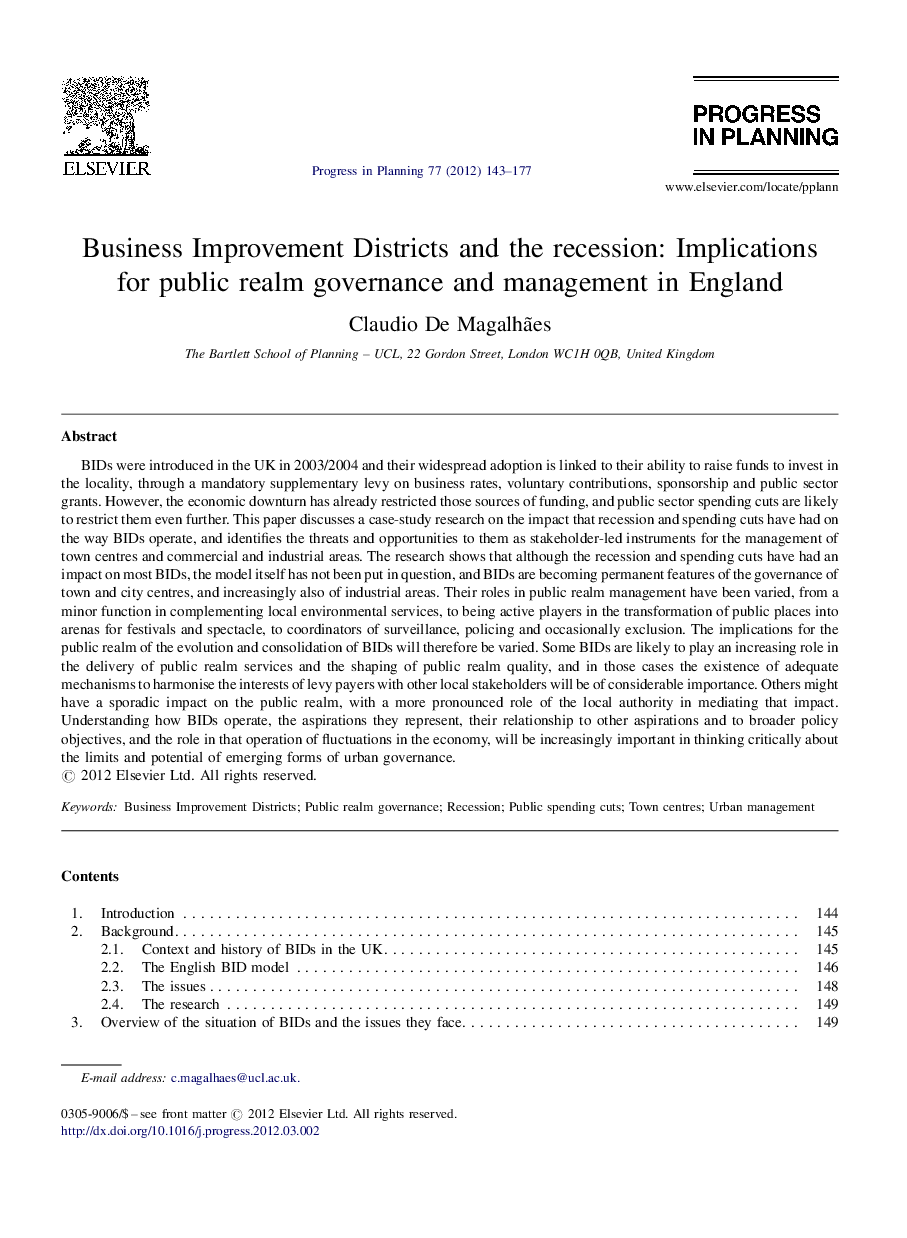| کد مقاله | کد نشریه | سال انتشار | مقاله انگلیسی | نسخه تمام متن |
|---|---|---|---|---|
| 1050908 | 945898 | 2012 | 35 صفحه PDF | دانلود رایگان |

BIDs were introduced in the UK in 2003/2004 and their widespread adoption is linked to their ability to raise funds to invest in the locality, through a mandatory supplementary levy on business rates, voluntary contributions, sponsorship and public sector grants. However, the economic downturn has already restricted those sources of funding, and public sector spending cuts are likely to restrict them even further. This paper discusses a case-study research on the impact that recession and spending cuts have had on the way BIDs operate, and identifies the threats and opportunities to them as stakeholder-led instruments for the management of town centres and commercial and industrial areas. The research shows that although the recession and spending cuts have had an impact on most BIDs, the model itself has not been put in question, and BIDs are becoming permanent features of the governance of town and city centres, and increasingly also of industrial areas. Their roles in public realm management have been varied, from a minor function in complementing local environmental services, to being active players in the transformation of public places into arenas for festivals and spectacle, to coordinators of surveillance, policing and occasionally exclusion. The implications for the public realm of the evolution and consolidation of BIDs will therefore be varied. Some BIDs are likely to play an increasing role in the delivery of public realm services and the shaping of public realm quality, and in those cases the existence of adequate mechanisms to harmonise the interests of levy payers with other local stakeholders will be of considerable importance. Others might have a sporadic impact on the public realm, with a more pronounced role of the local authority in mediating that impact. Understanding how BIDs operate, the aspirations they represent, their relationship to other aspirations and to broader policy objectives, and the role in that operation of fluctuations in the economy, will be increasingly important in thinking critically about the limits and potential of emerging forms of urban governance.
► BIDs now part of urban governance but their resilience is untested.
► Recession and spending cuts have affected BIDs income only marginally so far.
► BIDs services mostly unaffected but capital programmes suffer from absence of grants.
► Coping strategies of BIDs leading to diverging paths in different localities.
► Resilience confirmed but multiple roles emerging in public realm management.
Journal: Progress in Planning - Volume 77, Issue 4, May 2012, Pages 143–177